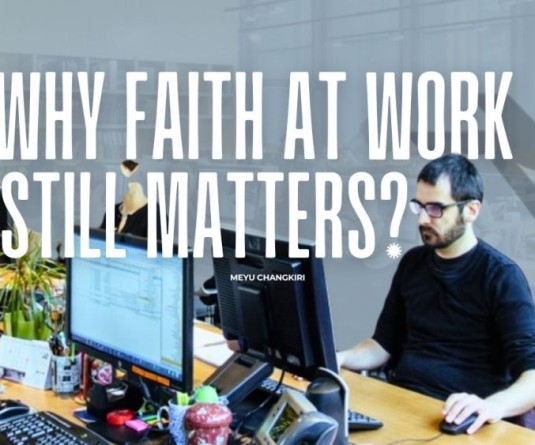
Sentilong Ozukum
Every morning before dusk, my locality is filled with the mouth watering aroma of fresh bread. The reason – Our next door neighbour owns a bakery. And this morning I could not resist the pleasant smell which had snuck in through the half open window of my bedroom. The sweet aroma dulled my senses and made me painfully hungry. I at once jumped out of the bed and pushed myself into the kitchen. I put the kettle over the fire and then searched for my father who held the password to enter the bakery. Luckily I found him out in the street exchanging some morning vibes with a friendly neighbour. I approached him and managed to coax twenty bucks from his pocket and off I hopped towards the place from where the mouth watering smell was spreading. How little did I realize when I stepped inside the inn that I would learn one of the life transforming lessons of my life from the fresh breads over the oven. What I saw indeed inside the inn was a marvellous sight! Thousands of brownish bread over the oven receiving the final touches. As I pondered over the huge furnace there was a loud hue and cry as the bakers engaged themselves in packing the breads in huge wooden boxes. I gazed once again at the uncountable breads and I remembered Jesus’ statement, “I’m the Bread of Life” ƒT For a moment I wondered what Jesus was trying to mean by saying that He was the bread of life? Was He trying to say that He possesses an unmatched smell? Was He trying to imply that He arouses hunger?
As I stood watching the breads transported off, I could reason three similarities between Christ and the bread. Number one. Bread is universally available. Bread is a Staple. Every country owns bread. Bread is not a regional food or a national dish. No country claims to own bread. If the rich have everything, they still have bread. If the poor have nothing, they have bread. Bread is everywhere at the same time. So is Christ. Number two. Bread is eaten daily. The bakery does not produce bread once in a week or fortnight but daily. Bread is available in all seasons. Some fruits are available only in a particular season. Some drinks are made only at a particular season. Not so with bread. And not so with Christ. He is universally available in all the seasons. Number three. Bread is served in many forms. It’s toasted, buttered, flattened or grilled. It can be a sandwich, sweet roll, hot-dog or dinner roll. Bread can meet many needs. So can Jesus. He has a word for the lonely as well as for the popular. He has help for the physically ill as well as the emotionally ill. Jesus can meet each need. Small wonder Jesus called Himself the Bread of Life.
With these thoughts I ran down the steps towards my home and as I entered the gate I heard my mother delivering a sermon in the kitchen to anyone who cared to listen. I wondered who or what had triggered her mood at such an early hour. As I reached the door steps, I heard her booming words more clearly. Somebody had put the tea pot boiling over the gas stove and left unattended...What somebody? I was the culprit. I slowly sneaked into the kitchen like a cat only to meet my mom’s fiery eyes. She pointed to the burnt kettle on the stove and asked, “Is this your work?” I was in deep trouble. I struck upon an idea. At once turned to my brother, put on a smile and gently asked, “Did you not hear properly what I told you? I told you to switch off the stove…” He scowled back with equal ferocity, “You never told me anything!” I at once took control of the situation and settled the matter quickly. Ten minutes later I was in my room with a cup of tea in one hand and two slices of the bread on the other. The bread in my hand was still warm and spongy. I thought about all the steps involved in making the bread. First wheat grows in the field and then it is cut down. Secondly the wheat is winnowed and grounded into flour. Thirdly the flour is mixed with the required ingredients and then it is passed through the fire of the oven. Finally we get bread which is distributed around the world. Only by these steps bread becomes bread. Each step is important and essential. Without the plant there will be no wheat. Without the winnowing there will be no flour. Without the fire there will be no product. And without the distribution there will be no satisfaction. Each step is essential. Ironically Christ too passed through the same process. He first grew up as a small plant before the Lord.ƒU Like a staff of wheat in the wheat field he was one among the million boys in the planet. But like wheat He was cut down, pounded and beaten. He was wounded for the wrong we did. He was crushed for the evil we did.ƒV And like bread, he passed through the fire of God’s anger, not because of his sin but because of ours.ƒW Jesus experienced each part of the process of making bread: the growing, the pounding, the firing. And just as each is necessary for Christ to become the bread of life.
When Jesus proclaimed that He is the bread of life I wonder if He ever used His hands to illustrate His point. Did He stretch out His hands inviting all those who were starving spiritually? Whether he did that day or not, I don’t know. But I know that he did later. He later stretched his hands as open as he could. He forced his arms so wide apart that it hurt. And to prove that those arms would never fold and those hands would never close, He had them nailed open. They still are.
John 6:35, Isaiah 53:2, Isaiah 53:5, Isaiah 53:6





